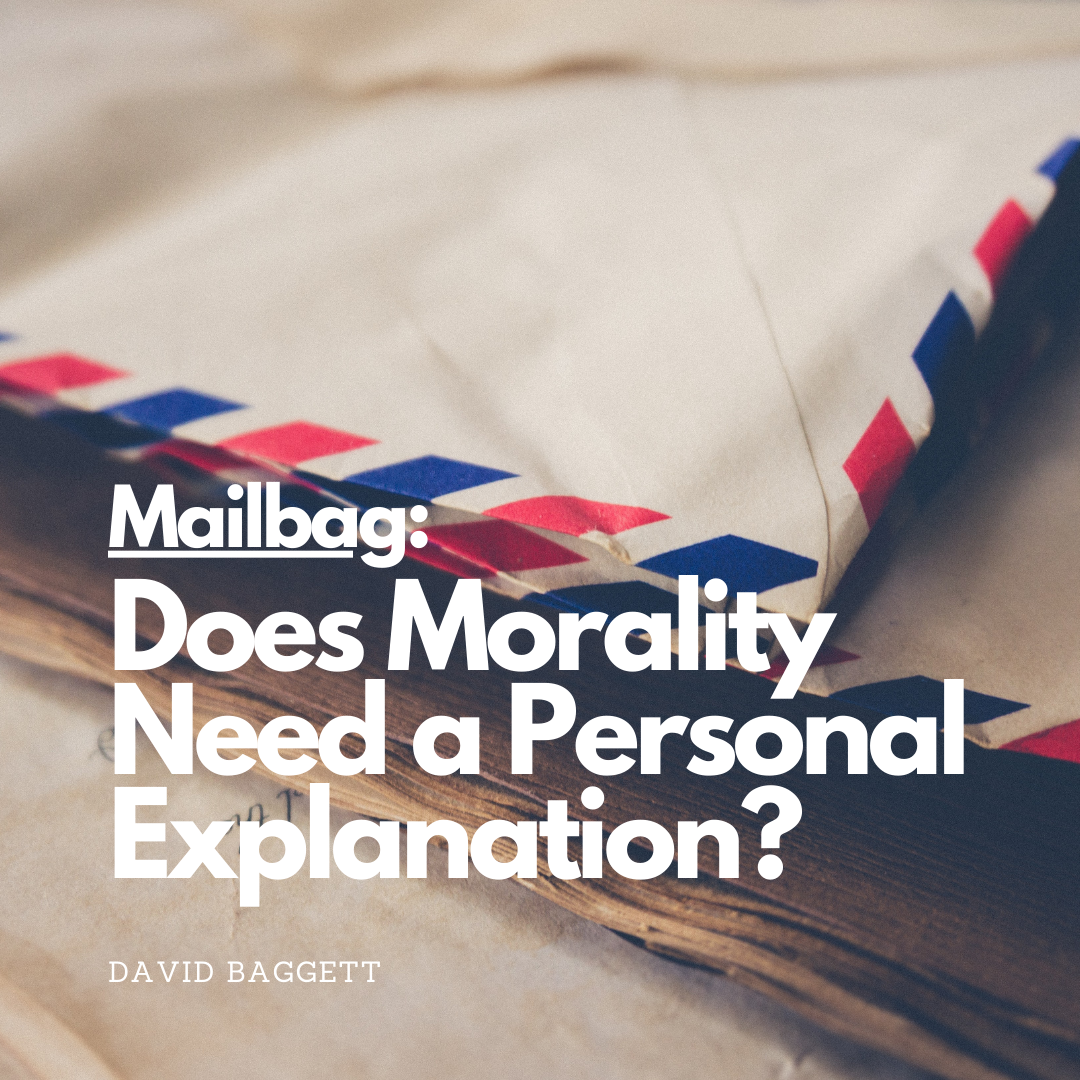The ‘Golden Rule’ attributed to Moses, to be found in the book of Leviticus and subsequently repeated by Jesus, tells us to go beyond our own personal interests and ‘love thy neighbour as thyself’ – in other words, give the same weight to the interests of others as one gives to one’s own interests. The same idea of putting oneself in the position of another is involved in the other Christian formulation of the commandment, that we do to others as we would have them do to us. The Stoics held that ethics derives from a universal natural law. Kant developed this idea into his famous formula: ‘Act only on that maxim through which you can at the same time will that it should become a universal law.’ Kant’s theory has itself been modified and developed by R. M. Hare, who sees universalisability as a logical feature of moral judgments. The eighteenth -century British philosophers Hutcheson, Hume, and Adam Smith appealed to an imaginary ‘impartial spectator’ as the test of a moral judgment, and this theory has its modem version in the Ideal Observer theory. Utilitarians, from Jeremy Bentham to J. J. C. Smart, take it as axiomatic that in deciding moral issues ‘each counts for one and none for more than one’; while John Rawls, a leading contemporary critic of utilitarianism, incorporates essentially the same axiom into his own theory by deriving basic ethical principles from an imaginary choice in which those choosing do not know whether they will be the ones who gain or lose by the principles they select…. One could argue endlessly about the merits of each of these characterisations of the ethical; but what they have in common is more important than their differences. They agree that an ethical principle cannot be justified in relation to any partial or sectional group. Ethics takes a universal point of view[6]
Third moral requirements have practical authority: agents always have conclusive reasons to do what is morally required and never have sufficiently good reasons for doing what is morally wrong. Someone has conclusive reasons to act in a certain way when the reasons in favor of acting, taken together, are stronger than any set of reasons we may have to act in some other way. If we don’t always have conclusive reasons to do what is right, having total allegiance to morality will be arbitrary and, at worst irrational. We will have no more reason to do what is right than wrong. Or doing the right thing will be doing what we have a most reason not to do.[7]
Moral requirements are supposed to answer questions about what we are to do. They are considerations that guide our actions. When we learn something is wrong, that tells us what we are not to do. They cannot do this if we lack conclusive reasons to do what they say. Suppose you and I are discussing whether it is my duty to donate to the red cross. You convinced me it is my duty to do so. The red cross knocks on my door. I refuse to donate. I suspect this would puzzle you; didn’t I concede that I had a duty to do it? If I responded with “yes, I am persuaded it is my duty to do it, but that doesn’t mean I have reasons to do it,” I suspect you would think I was missing something. I would deny moral requirements have any authority or claim on my behavior and don’t address the question, “what ought I do?”.[8]
Or suppose you heard that I had resigned from my high-paying job. You think I am nuts. How am I going to provide for my family? Why would I give up the career I always dreamt of? I tell you, I discovered the firm was engaging in unethical business practices, and I had to resign to avoid being complicit. On hearing this, wouldn’t it now make sense that I did this? I was justified in doing so. If you do, you are assuming that the fact an action is wrong justifies my refraining from doing it.[9]
Fourth, a final assumption is that if something is morally required, we are accountable for doing it in an important sense. John Stuart Mill famously stated,
“We do not call anything wrong unless we mean to imply that a person ought to be punished in some way or other for doing it—if not by law, by the opinion of his fellow creatures, if not by opinion, by the reproaches of his own conscience. This seems the real turning point of the distinction between morality and simple expediency.”[10]
There is a conceptual link between something being morally obligatory and something being blameworthy. If we do what is morally wrong without excuse, others can legitimately blame us, and guilt is warranted. Moral requirements conceptually are demands people make upon one each, which we can hold each other accountable through demanding an excuse, practices of blaming, criticizing, and guilt.
Robert Adams asks us to imagine a situation in which there are compelling reasons to support you not walking on the lawn. However, these reasons give you no grounds for feeling guilty if you do, and they provide no reasons for other people to make you feel like you must stay off the lawn or to blame and reproach you for doing so. Adams concludes that while there would be a sense in which you ought not to walk on the lawn, you have no obligation not to do so.[11]
So, whatever property moral wrongness is, it is the property of being prohibited by certain standards: standards that are inescapable and justified from an impartial point of view. The fact these standards prohibit an action means agents have conclusive reasons not to do the action in question. Agents are also accountable for actions doing actions prohibited by these standards. Others can blame and sanction me if I act contrary to them without an adequate excuse. A plausible thesis about the nature of moral wrongness should account for these facts.
In my next post, I will defend my first contention: that secular accounts of morality struggle to coherently account for these four assumptions.

























